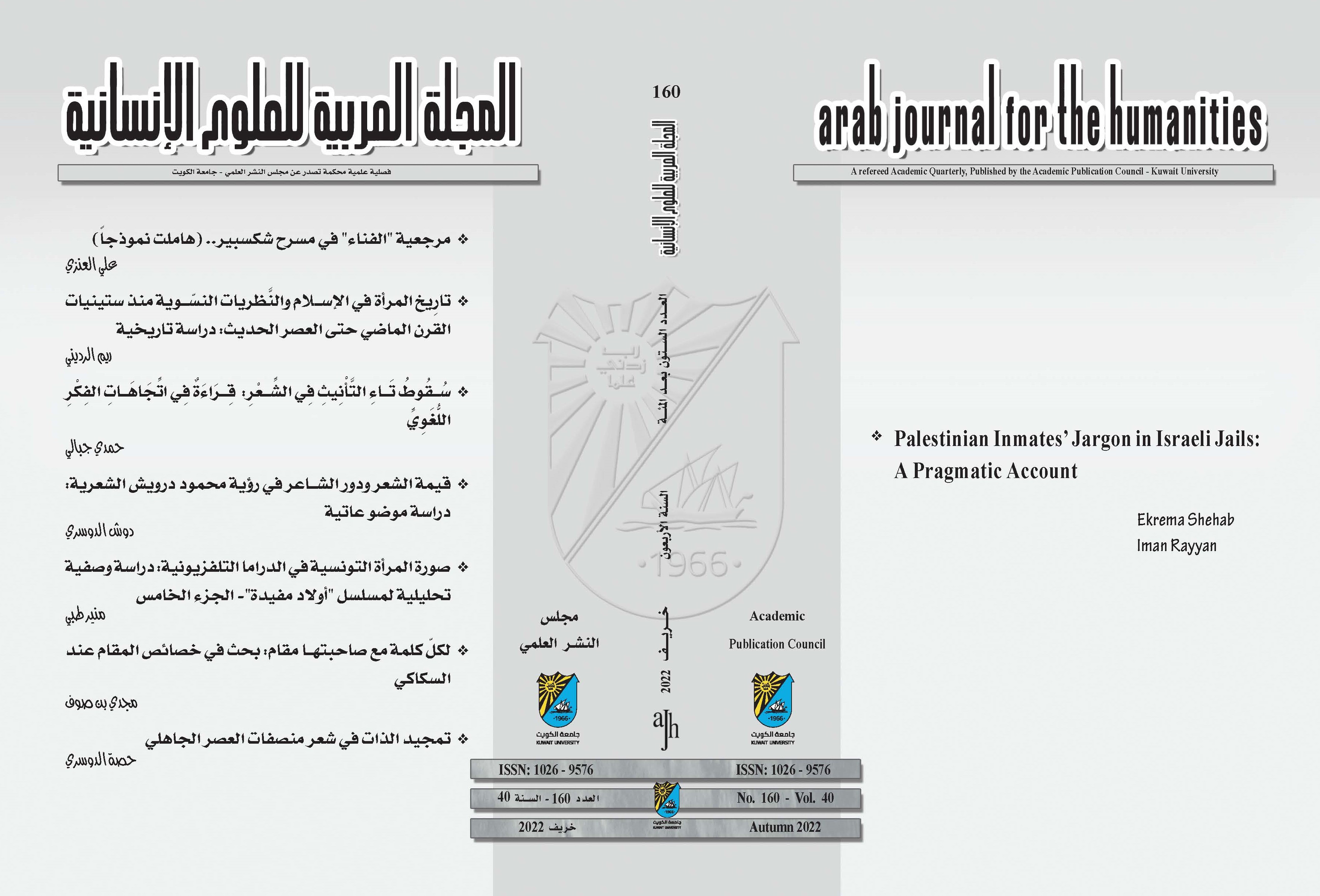Every Communicative Situation has its Own Context: Maqam (Context) in Al-Sakkaki’s Miftah Al-Ulum.
Mots-clés :
Al-Sakaki, syntactic complexity, Maqam (context), situation of context, informativity, representation, addresseeRésumé
The famous statement in Miftah Al-Ulum “If you embark on speaking, every communicative situation has its own context” is considered one of the unique sayings in the Arabic rhetorical theory. It encapsulates the principal perception of the conditions that the speaker must consider the moment they begin to speak, in order to achieve the main purpose of communication that is informativity.
In this article, our purpose is not to examine the conditions of the Maqam (i.e. context), and its effect on the speaker, as this issue has received enough attention research-wise; rather, our main goal is to demonstrate the possibility of doing a hypothetical reconstruction of the Maqam of the speaker's communicative situation, from the moment they embark on speaking to the moment of its completion; this reconstruction can be accurate in the sense that it can reveal the speaker's cognitive and informative state, based on the occurring linguistic structure.
The inductive-analytical approach has been adopted in this study to deal with the concept of Maqam in the Miftah Al-Ulum, within a broader conception of what Al- Sakkaki called the "science of literature".
It has been concluded, in light of the scholarly treatment of this central statement that it represents one of the main keys in the rhetorical thinking of the Arabs, as it provides an understanding of the Maqam in a more accurate and in a wider picture than that circulated among the ancient.
Maqam, in Al- Sakkaki’s model, is built on three levels
- An occurring Maqam which is completed the moment the speaker finishes their talk.
- A gradual partially composite Maqam, changeable according to the requirements of speech.
- A typical general Maqam that is a generally cognitive one.
For him, Maqam is composite and complex in the sense that it reverses the structural complexity of the utterance. Al-Sakkaki’s work Miftah Al-Ulum remains one of the self-closed and unearthed texts that opens the horizons for us in research, whenever we endeavor to address such a topic with modern linguistic tools.
















